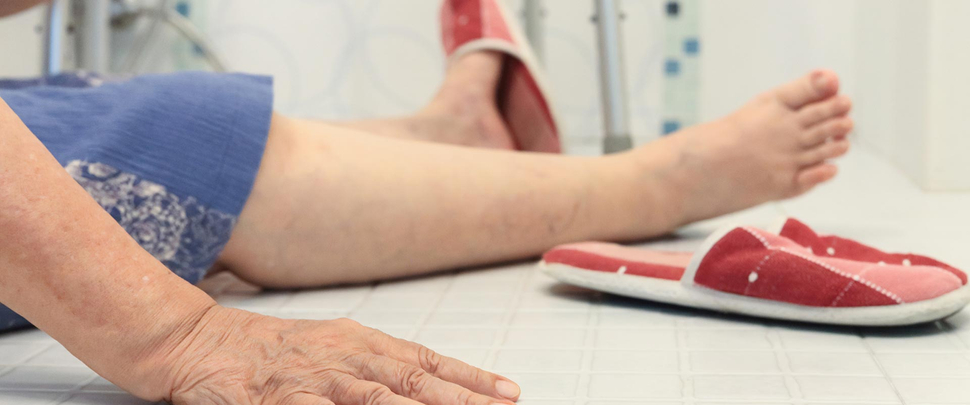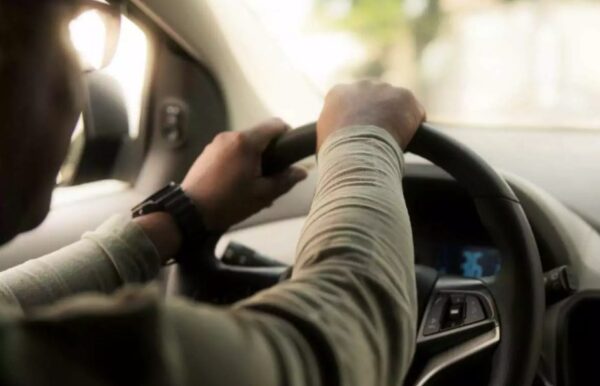Lifestyle-Health
7 Fall Prevention Tips for Seniors and Caregivers

Most injuries affecting older people are the result of falls, but falls don’t just happen as we get older. More often than not, falls occur due to one or more risk factors. These include your physical and medical condition, as well as safety hazards in your home or community environment.
Personal risk factors include muscle weakness, especially in the legs; poor balance and difficulty walking; as well as a sudden drop in blood pressure (postural hypotension) when you get up from lying down or sitting.
Falls can cause broken bones, such as wrists, arms, or hip fractures. It may even cause head injuries. People who fall often can develop a fear of falling, which may cause them to reduce movement, have slower reflexes and cease everyday activities.
As a result of reduced physical activity, you get weaker, and this increases your chances of falling. Although falls may happen due to accidents or risk factors, they can actually be prevented.
Personal Risk Factors for Falls
Avoid the risk factors for falls.
Most falls are caused by a combination of risk factors. The more risk factors you have, the greater your chances of falling.
Muscle weakness
Poor balance and difficulty walking independently
Postural hypotension (sudden drop in blood pressure when you get up from lying down or sitting)
Foot problems or unsafe footwear
Lack of clear vision, wearing glasses with the wrong prescription or other eye conditions such as cataracts and glaucoma
Side effects of certain medications that cause dizziness or confusion
Slower reflexes
Fallen before
Have chronic conditions such as arthritis, high blood pressure, diabetes, stroke, or Parkinson’s disease
Have weaker control of bladder (urinary incontinence) and frequently need to go to the bathroom
Have dementia, depression or self-perceived poor health
Related: Preventing Falls at Home
Tips to Prevent and Reduce the Risk of Falls
1. Exercise Regularly to Prevent Falls
Regular physical activity will lower the chances of falling.
Engaging in at least 150 – 300 minutes of moderate-intensity aerobic physical activity weekly will help increase your endurance. Try to do a mix of physical activity, especially strength, balance and flexibility exercises at least 3 days a week. For example, do exercises such as Tai Chi, Pilates or swimming to strengthen your muscles and improve your balance. On other days that week, do aerobic exercises such as brisk walking, Zumba or cycling to improve your heart health and circulation. You will find that your balance and gait will improve, and reduce the risk of a fall. Regular physical activity will also reduce symptoms of postural hypotension. Try these seven easy exercises!
2. Keep Your Bones Strong
Keep your bones strong with high-calcium milk.
When bones are weak, they tend to break more easily. This is known as osteoporosis. By taking enough calcium-rich foods every day, you can keep your bones strong. These include low-fat high-calcium milk, sardines, and cheese. Getting an adequate dose of vitamin D from sunlight also helps to keep bones healthy.
Vitamin D helps our body absorb calcium from the food we eat. It can be found in eggs, cod liver oil or fatty fish such as tuna, salmon and sardines. The best way to obtain sufficient vitamin D is to take a walk outdoors when the sun is up. 15 to 30 minutes of exposure to sunlight every day is all we need. However, avoid outdoor activities during the hottest period of the day (10:30 am to 3:30 pm).
Related: Keeping Bones Strong With Exercise and Calcium-Rich Foods
3. Go for Regular Eye Checks
Get your eyes checked regularly to maintain clear vision.
Get your eyes checked at least once a year to ensure a clear vision. Your doctor will also be able to detect if you are suffering from any eye conditions such as glaucoma or cataracts, or if your spectacles are fitted to a wrong or outdated prescription.
Related: Eye Care in Your 60s and Beyond
4. Wear Non-slip Shoes
There are shoes for the elderly to prevent falls.
It is important to select footwear that gives you a secure footing on the ground which thus reduces your risk of slipping. Non-slip soles are essential for a good grip. Ensure that your shoes are comfortable and well fitted to prevent injury.
5. Keep Your Home Safer with These Tips
Fall proofing your home is crucial to prevent and reduce the risk of falls.
Making sure your home environment is risk-free reduces chances of falling. Here are some ways to do so:
Arrange your furniture to make clear pathways for walking.
De-clutter your home to prevent tripping or knocking into things. Ensure that all wires are tucked against the walls to prevent tripping over them. Secure them so that they are out of the walkways.
Use non-slip mats, especially in the bathroom and kitchen, to avoid slipping.
Install grab bars in the bathroom or on stairs for additional support.
Avoid wet floors and clean up mess or spills immediately to reduce the chances of falling.
Keep frequently used items where you can easily reach them. For example, in lower shelves or cabinets.
Keep your home well-lit so you can see clearly. Consider adding more lights to dark areas to promote clear vision, such as staircases, or place a lamp beside your bed should you need to visit the bathroom at night.
Ensure that your feet touch the floor when you sit on the edge of your bed. Before standing up, sit upright for a few moments to regulate blood flow.
Related: Keep Your Family Safe With These Fall Prevention and Home Safety Tips
6. Review Your Medication with Your Doctor
Consult your doctor about the types of medication you are taking.
If you take four or more different types of medication, visit your doctor for a review at least once a year. Some medications might affect your coordination or balance, or cause dizziness, confusion, or sleepiness, which may increase your risk of falling.
Do bring along any other vitamins or supplements you may be taking as they may cause unwanted side effects when taken with your medication. Always consult your doctor before starting on any kind of medication or supplement.
Related: Know Your Medication
7. Avoid Alcohol
Drinking alcohol can increase your risk of falling.
Avoid drinking alcohol as it can affect balance and reflexes, which may result in falls and fractures or other injuries.
-

 Lifestyle-Health7 months ago
Lifestyle-Health7 months agoInvesting ₹10,000 a month via SIP in this mutual fund would have swelled to ₹1.71 crore in 21 years. Check how
-

 Lifestyle-Health7 months ago
Lifestyle-Health7 months agoMultibagger small-cap stock under ₹50 jumps despite sell-off in Indian stock market
-

 Breaking News4 months ago
Breaking News4 months agoIsrael Names 77 Countries That Boycotted Netanyahu’s UN Speech In Protest Over Gaza War
-

 News In Diaspora7 months ago
News In Diaspora7 months agoHotels and homes on Crete evacuated as wildfire burns out of control
-

 Lifestyle-Health8 months ago
Lifestyle-Health8 months agoOgie Alcasid’s daughter Leila ties the knot in Australia
-

 Lifestyle-Health8 months ago
Lifestyle-Health8 months agoDriving Abroad: These 34 countries accept SA licenses
-

 Politics9 months ago
Politics9 months agoFinally Federal Government of Nigeria Assures Citizens, Says The President Isn’t Controlled by Any Cabal
-

 Lifestyle-Health5 months ago
Lifestyle-Health5 months ago11 signs of growth that you might have missed
-

 Lifestyle-Health8 months ago
Lifestyle-Health8 months ago10 Unwritten Rules for Visiting Bali that Travelers Should Know
-

 Breaking News5 months ago
Breaking News5 months agoVeteran actress, Peju Ogunmola, loses only child, Ayomikun
-

 Lifestyle-Health6 months ago
Lifestyle-Health6 months agoWhen to take time off and focus on yourself and your family
-

 Breaking News7 months ago
Breaking News7 months agoNeymar’s Net Worth in 2025: Football Career, Earnings, Endorsements, and More

